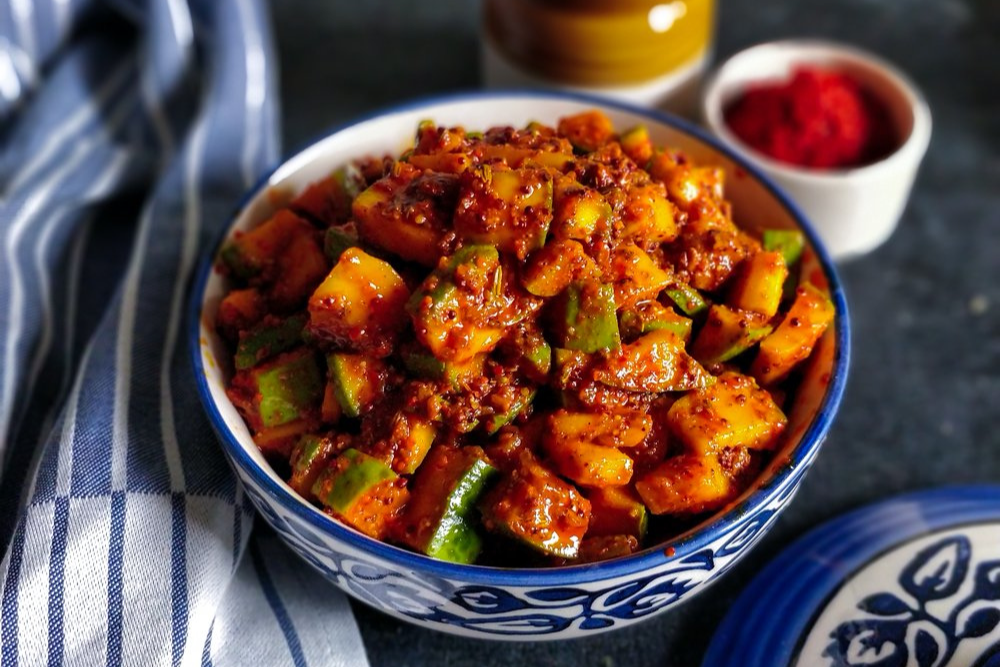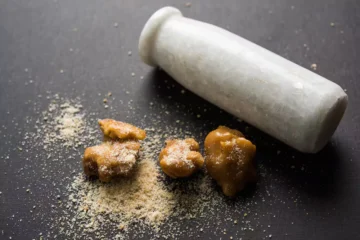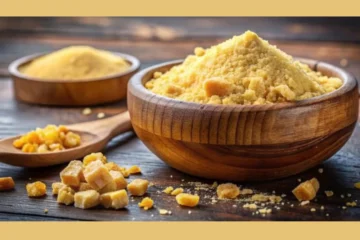Looking for a natural way to improve digestion without compromising taste? Hing Mango Pickle for gut health might just be your new pantry superhero. Let’s explore its benefits, usage, and safety — especially for those with sensitive stomachs or indigestion issues.
Can Hing Mango Pickle Actually Improve Digestion, or Is It Just Spicy Comfort Food?
Yes, Hing Mango Pickle can genuinely aid digestion — it’s more than just a spicy comfort food.
Many people associate pickles with indulgence, but hing (asafoetida) and raw mangoes both hold powerful digestive properties. Let’s bust the myth and break down the facts:
- Hing (Asafoetida): Known in Ayurveda as an antispasmodic and carminative agent that reduces gas and promotes gut movement.
- Raw Mango: Its enzymes stimulate digestive juices, supporting bowel regularity and acid balance.
- Spices like Fenugreek & Mustard: These commonly found spices in mango pickles enhance bile flow and reduce bloating.
- Traditional Fermentation: In some variants, mild fermentation introduces probiotics, which support microbiome diversity.
- Appetite Booster: The tangy-sour-spicy combo naturally stimulates the palate and kickstarts digestion.
How Does Hing in Mango Pickle Help With Bloating or Indigestion After Meals?
Hing in mango pickle reduces bloating and indigestion by relaxing the abdominal muscles and improving enzyme secretion.
Hing, or asafoetida, has long been a staple in Indian kitchens for post-meal relief. Here’s how it works in the context of mango pickle:
- Relaxes GI Tract Muscles: Hing reduces spasms and relaxes smooth muscles in the gut, preventing gas buildup.
- Stimulates Pancreatic Enzymes: It helps break down food efficiently, reducing undigested matter in the intestines.
- Neutralises Flatulence: Hing prevents sulfurous gas formation, which is often a cause of bloating and discomfort.
- Anti-inflammatory Action: Its compounds reduce inflammation in the stomach lining, which can occur post heavy meals.
- Synergistic Effect with Mango: The combination improves bile release and helps fats break down properly.
Is Hing Mango Pickle Safe for People With Sensitive Stomachs or Acidity Problems?
Yes, but only in moderation — hing mango pickle can be safe for sensitive stomachs when consumed in small, controlled amounts.
Spicy and acidic foods can be tricky for people with reflux or gastritis. However, when eaten wisely, hing mango pickle may offer benefits without triggering discomfort:
- Start with ½ teaspoon: Begin with minimal quantities to check tolerance levels.
- Choose low-oil varieties: Some pickles are high in oil and spice; go for mild, homemade or low-oil options.
- Pair with cooling foods: Eat it with curd rice, dal-chawal, or khichdi to buffer acidity.
- Avoid on an empty stomach: Always consume with or after meals to prevent mucosal irritation.
- Consult your doctor: If you have ulcers, IBS, or GERD, discuss with a healthcare provider before regular consumption.
Does the Fermentation or Spice Blend in Hing Mango Pickle Contribute to Gut Health in Any Way?
Yes, both fermentation and spice blends in hing mango pickle offer gut-friendly benefits through probiotics and digestive stimulation.
Traditional Indian pickling often relies on age-old practices that naturally boost gut flora. Here’s how:
- Lactic Acid Bacteria (LAB): In naturally fermented pickles, LAB help restore gut flora and support immune health.
- Turmeric: A natural anti-inflammatory spice that calms gut lining and supports digestion.
- Mustard Seeds: They possess antimicrobial properties and stimulate the liver for better bile secretion.
- Chilli & Ginger: Help in warming digestion and increasing metabolic fire (Agni).
- Salt & Oil: Work as natural preservatives while promoting the drawing out of enzymes during pickling.
| Ingredient | Function in Digestion |
|---|---|
| Hing (Asafoetida) | Relieves gas, boosts enzyme flow, reduces bloating |
| Raw Mango | Stimulates bile production and appetite |
| Mustard Seeds | Enhances liver function, antimicrobial |
| Fenugreek | Improves gut motility and soothes inflammation |
| Turmeric | Anti-inflammatory and gut lining protector |
How Can I Include Hing Mango Pickle in My Daily Meals Without Overdoing the Salt or Spice?
Consume ½ to 1 teaspoon of hing mango pickle per meal, paired with bland or cooling dishes to maintain balance.
Overconsumption of pickles can lead to high sodium intake and digestive irritation. Here’s how to enjoy it mindfully:
- Stick to Small Portions: ½–1 tsp per meal is sufficient for flavour and benefits.
- Pair with Simple Foods: Combine with dal-rice, curd rice, paratha, or upma to mellow its intensity.
- Use as a Flavor Enhancer: Add a tiny portion to salad dressings, chutneys, or wraps instead of salt or sauces.
- Choose Low-Salt Versions: Opt for homemade or artisan pickles with reduced sodium and oil content.
- Don’t Eat with Every Meal: Rotate its usage — use 3–4 times a week instead of daily for balance.
Conclusion: Should You Include Hing Mango Pickle in Your Gut-Health Routine?
Absolutely — when consumed wisely, Hing Mango Pickle is a spicy superfood that supports digestion, relieves bloating, and promotes overall gut health.
If you’re looking to spice up your meals while giving your digestive system a little extra support, hing mango pickle is a smart and flavourful addition. Remember:
- Start small and observe how your body reacts.
- Use it as a condiment, not a main dish.
- Balance it with fibrous, hydrating foods like vegetables and curd.
When combined with a healthy diet, Hing Mango Pickle can be more than just a burst of flavour — it can be your gut’s best friend.




